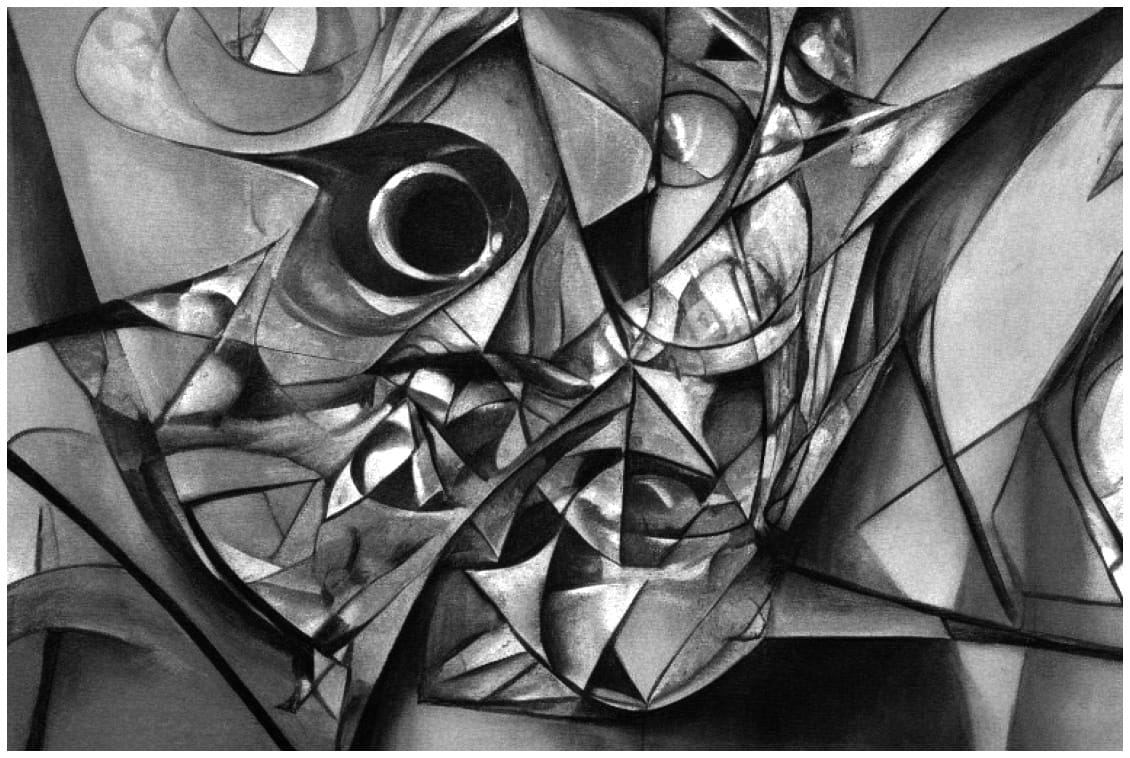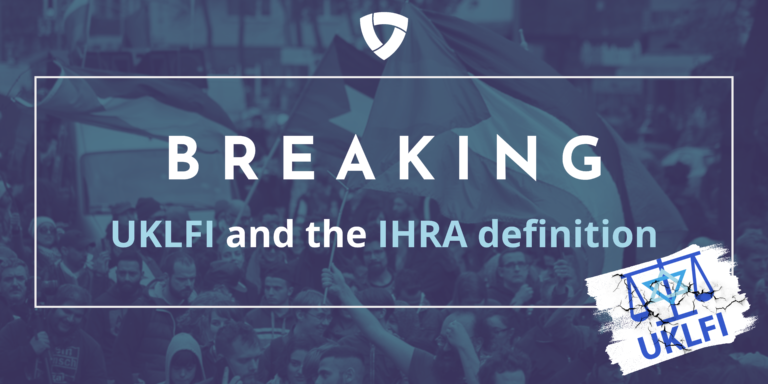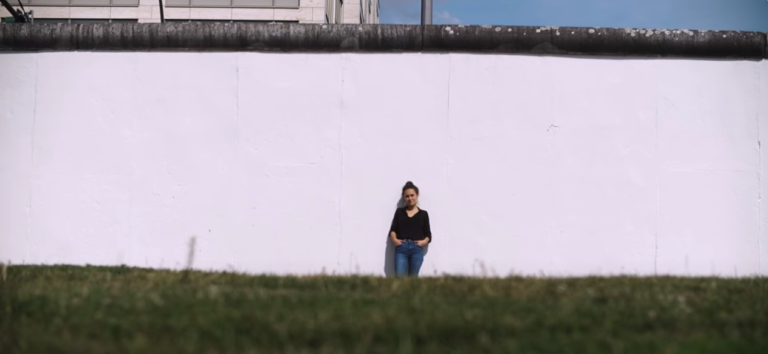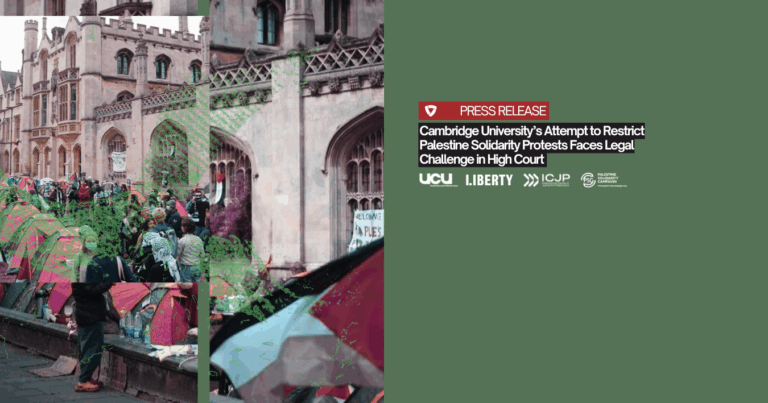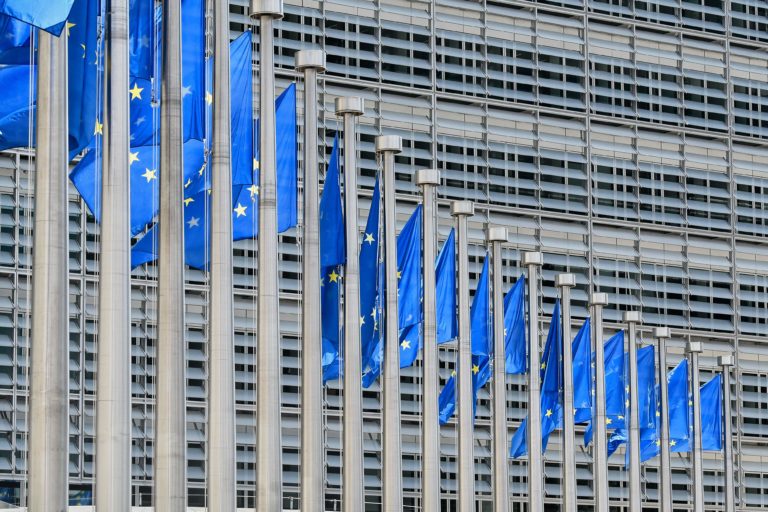Antisemitism, Palestine and academic freedom. Interview with the European Legal Support Center
The ELSC gave an interview to Dr Sevgi Doğan for Security Praxis blog about the impact of the IHRA Working Definition of Antisemitism on academic freedom and unfounded allegations of antisemitism in academia. Read it below.
Original publication on Security Praxis blog: https://securitypraxis.eu/antisemitism-palestine-academic-freedom-interview-elsc/
The International Holocaust Remembrance Alliance’s (IHRA) adopted a working definition of antisemitism of 2016 to address the rise in hate and discrimination against Jews. It has been formally adopted by the UK government (2016) and, according to IHRA’s list, by many others, and several university administrations in the United States and the UK.
In some cases the definition has been instrumentalised using the accusation of antisemitism to discredit academics because of their pro-Palestinian stance. Regarding this issue, we interview Giovanni Fassina and Alice Garcia from the European Legal Support Center (ELSC) which is an independent legal organization that provides free legal advice and assistance to advocates for Palestinian rights, and that supports the Palestine solidarity movement in mainland Europe and the United Kingdom. The Center also supports academics, scholars, grassroots activists, NGOs and charities who are facing defamation, bullying and/or repression. They have been working on several cases of restrictions on academic freedom in Austria, the United Kingdom and Germany.
Today, we discuss the IHRA’s definition of antisemitism and its adaptation, restrictions on human rights activists defending the rights of the Palestinian people and the work of scholars whose area of expertise is post-colonial studies, ethnic and religious conflicts, Middle Eastern studies, and the Israeli occupation of Palestinian territory, as well as (self-)censorship. Besides, Giovanni and Alice answer our questions about the role of ELSC to promote freedom of expression and academic freedom.
We thank you for your contribution.
Can you say something about the European Legal Support Center? What is it about?
The European Legal Support Center (ELSC) is the first and only independent organisation defending and empowering the Palestine solidarity movement in Europe through legal means. We provide free legal advice and assistance to associations, human rights NGOs, groups and individuals advocating for Palestinian rights in Europe, including in the United Kingdom.
The ELSC intervenes to end arbitrary restrictions and criminalisation of peaceful advocacy and humanitarian work. It also develops legal tools and engages in strategic litigation to support civil society advocacy and campaigns.
Our work is rooted in movement lawyering. This means that we take direction from Palestinian civil society to help us use our legal and advocacy skills to challenge structural discrimination and oppression against Palestinians and their allies in a way that empowers them.
In that context, the Center was established in January 2019 as a joint initiative of European jurists, the Palestinian civil society network PNGO and the Dutch NGO The Rights Forum – which is kindly hosting the ELSC in Amsterdam.
What is IHRA’s definition of anti-Semitism?
On 26 May 2016, the International Holocaust Remembrance Alliance (IHRA) adopted a “non-legally binding working definition of antisemitism”, also known as the “IHRA definition”. The definition declares: “Antisemitism is a certain perception of Jews, which may be expressed as hatred toward Jews. Rhetorical and physical manifestations of antisemitism are directed toward Jewish or non-Jewish individuals and/or their property, toward Jewish community institutions and religious facilities.”
To complement the definition, the IHRA attached a set of eleven examples that serve as illustrations of “contemporary antisemitism”, seven of which relate to Israel. You can read more background on how the definition and its examples came to be adopted by the IHRA here. These examples welcome a conflation of legitimate criticism of Israel’s policies with antisemitism. In fact, according to a recent report by former UN Special Rapporteur, Ms. E. Tendayi Achiume, on contemporary forms of racism, racial discrimination, xenophobia and related intolerance, the examples “are being invoked and leveraged to suppress fundamental human rights to freedom of expression, assembly, and political participation, as well as human rights to equality and non-discrimination”.
In this respect, numerous initiatives, institutions, civil society organisations in Europe and beyond, and academics, including Jewish scholars and Palestinian scholars, have levelled criticism at the instrumentalisation of the IHRA definition as a tool to discredit legitimate objections to the Israeli government’s policies and actions. Crucially, even the IHRA definition’s lead author himself, Kenneth Stern, has cautioned against its weaponisation and, most recently, as UN bodies are being pressured into adopting the IHRA definition, more than 100 scholars signed a letter denouncing its detrimental effects on academic freedom.
While the IHRA definition is a non-binding instrument, governments and academic institutions throughout Europe have been as their new policy to combat antisemitism despite the well-documented risks for fundamental rights it carries. Indeed, former Special Rapporteur Tendayi Achiume observed that “it is precisely the IHRA-WDA’s ‘soft law’ status, which effectively helps undermine certain co-existent rights, without offering any remedy or means to legally challenge such violations”.
How does it affect universities and academic freedom? Can you see it as an instrument to limit academic freedom?
Universities are being pressured into adopting the IHRA definition by their governments. As a result, more than 200 British universities have incorporated the definition into their policies, and limitations to academic freedom and discussion have already been reported. The IHRA definition has thus become a binding policy in many universities, which has already led to students and staff members being subjected to disciplinary proceedings under it.
The case of Shahd Abusalama (see further details below) illustrates how unfounded accusations of antisemitism often cost scholars and academics their jobs and reputation. Though such accusations are consistently disproven and dismissed, they instill the fear of being subjected to arbitrary disciplinary proceedings in the first place.
Similar cases have also emerged in Germany and Austria, where allegations of antisemitism supported by the IHRA definition have been used as a tool to silence academics, thus limiting their academic freedom and, more broadly, their freedom of expression. Notable cases include the cancellation of Dr. Walaa Alqaisiya’s lecture at the Vienna Academy of Fine Arts, as well as Dr. Anna-Esther Younes’ surveillance and disinvitation from an event organised by the Berlin chapter of political party The Left (Die Linke).
The formal inclusion of the IHRA definition within university policies and its use as a tool to discredit legitimate speech thus results in an arbitrary stigmatisation of academics who dare to speak their mind about Palestine and can lead to a climate of fear and self-censorship that gravely harms academia and Palestinian rights advocacy at large.
Do you think one day this kind of statement, or definition can lead to universities to accept it otherwise they can be accused of anti-Semitism?
Yes, this is a concrete risk. As previously stated, universities are encouraged, including by their governments, to adopt the IHRA definition as an internal policy through a practice bordering improper interference with institutional autonomy. For instance, the UK government, in the person of the education secretary, has threatened funding cuts if universities refuse to adopt the definition.
Despite the governmental pressure, university bodies in the UK have rejected the definition. For instance, following University College London (UCL)’s adoption of the IHRA definition, its Academic Board called on the university to retract the definition and seek an alternative one. Such instances have led to various criticisms raised against academic institutions – although as of yet, no accusations of antisemitism. The latest example comes from the University of Aberdeen, which refused to adopt the IHRA definition and was soon accused of silencing Jewish voices and of taking a “scandalous position” on the matter. Such public accusations can damage a university’s reputation and detract the attention from the actual and pressing concerns raised by the IHRA definition in itself. However, UCL’s Academic Board and Aberdeen’s positions should be amplified and followed by others, as emblems of the defence of academic freedom.
Can you give some examples of the cases that the scholars were dismissed because of their works or critics about the conflict between Israeli and Palestine? One of the example as I know is from University of Bristol in 2021 where a professor of sociology David Miller lost his job because of his comment on Israel by accusation of antisemitism and another example is professor of Cornell University Architecture, Art, and Planning (Cornell AAP), Samia Henni, whose office was recently broken and looted, and who has been subjected to the online hate harassment in 2020/2021 after her publication (The Coloniality of an Executive Order) and lecture, “Palestine is There, Where it Has Always Been,” that she convened at Cornell University.
The cases of Dr. Anna-Esther Younes in Germany and Dr. Walaa Alqaisiya in Austria saw both scholars being brutally disinvited from events in which they were supposed to present their work. Both specialised in decolonial perspectives, and both were accused of antisemitism because of their academic research and publications on Palestine/Israel. Their subjection to smear campaigns and, in Dr. Younes’ case, to illegitimate surveillance, has severely damaged their reputation amongst the academic community – so much so that, despite the refutation of the allegations, it is still difficult for them to reclaim a space in academia. This goes to show how scholars on Palestine/Israel in Europe are sometimes compelled to self-censor in order to avoid groundless accusations, stigmatisation and even isolation from their peers.
In the UK, Dr. Shahd Abusalama was subjected to an internal investigation by Sheffield Hallam University (SHU) over a Twitter thread she posted. As part of this investigation, she was suspended a day before her teaching position was supposed to start. Thanks to a powerful worldwide public campaign supported by the Sheffield Hallam UCU, civil society organisations, academics, students, and the ELSC, the university lifted the suspension six days later, and dropped the investigation. A few months later, SHU launched a second investigation which cleared Shahd – yet again. This investigation was confidential, and in breach of a settlement agreement reached between Sheffield Hallam and Dr. Abusalama, a Senior University Official used this information to further smear Shahd in the press.
These are only a few examples that illustrate the risks Palestinian scholars, and academics working on Palestine/Israel more broadly, face on a daily basis. As Dr. Alqaisiya’s case shows, not only are universities resorting to the IHRA definition, but other pro-Israel actors are increasingly using the definition to back their allegations of antisemitism.
As the examples above and the case of David Miller show, the instances of scholars being silenced, dismissed, investigated and as a result alienated from the academic world are growing at a worrying pace throughout various European countries. The broad adoption of the IHRA definition encourages this trend by giving an appearance of soundness to the claim that criticism of Israel amounts to antisemitism.
How do the scholars at risk reach you?
Scholars at risk often find us through the solidarity movement, friends, relatives or online, on our website or social media. Anyone who wishes to reach out to the ELSC to request legal support or to report an incident of repression, including a limitation of their academic freedom based on their voices being raised to speak about Palestine/Israel, is welcome to do so through our website. We do our best to promptly get back to them and provide the support they need.
What kind of cases do you encounter? For what reason usually the scholars are accused of anti-Semitism or dismissed?
Most of the time, the scholars we defend write and teach on Palestine/Israel or the Middle East, or they are sympathetic to the Palestinian people’s struggle to access their fundamental rights. Some are also active on the topic in their personal, rather than professional, capacity. They sign petitions, go to protests, and/or express their opinions on this topic through their personal social media.
Usually, scholars face complaints (often anonymous) for alleged antisemitism and/ or smear campaigns from pro-Israel media or advocacy groups based on social media posts, academic articles, or other initiatives related to their activism. It is important to mention that, so far, all the scholars we support have been cleared of the allegations (or their case is still pending), for the very simple reason that they are baseless. Indeed, the allegations predominantly refer to conduct or actions that equate legitimate criticism of the Israeli State or its policies, or of Zionism as a political ideology, and have nothing to do with antisemitism. It is also important to add that those scholars keep being active on Palestine, and we strongly believe that our legal intervention and the many cases we have won deter the usual complainants to keep going with their unfounded allegations.
It seems that these cases are not talked a lot. Why do you think about this silence?
These cases are often underreported because universities are hesitant to get involved with an issue that some voices deem “controversial”. Universities fear that complaints and accusations may expose them and put their reputation on the line, even after academics are vindicated. There is a “Palestine Exception” in academia, as Palestine Legal documented in its landmark report concerning the US context.
The scholars themselves are sometimes afraid to speak out about their experience, because even a wrongful accusation of antisemitism entails a heavy and lasting stigma to one’s name. There is undue shame and taboo around the topic and speaking out can risk one’s career. It is what we call the chilling effect, which affects not only the people who are directly targeted but also their whole community. The chilling effect manifests itself in self-censorship and shrinking civic space, which interferes with the right to freedom of expression, including academic freedom, and the right of the public to receive accurate information on Palestine/Israel. This poses a threat to the safeguarding of fundamental rights, democracy and the rule of law in Europe.
However, it is crucial to break this pattern and build a support network that speaks out and expresses support for targeted scholars. This in turn helps academics feel safe to speak their minds without fear of retaliation and to see their reputation restored. Pushing back is possible, as we have experienced, and it is necessary if we want to challenge the restrictive policies and tactics aimed at silencing the voices that are critical of Israel or other apartheid or colonial regimes.
Academic freedom, according to UNESCO’s definition of 1997, is “[…] the right, without constriction by prescribed doctrine, to freedom of teaching and discussion, freedom in carrying out research and disseminating and publishing the results thereof, freedom to express freely their opinion about the institution or system in which they work, freedom from institutional censorship and freedom to participate in professional or representative academic bodies”. As a lawyer what do you think about academic freedom?
As stated by former Special Rapporteur and Professor of Law Tendayi Achiume, academic freedom must be interpreted as “the freedom of individuals, as members of academic communities (e.g., faculty, students, staff, scholars, administrators and community participants) or in their own pursuits, to conduct activities involving the discovery and transmission of information and ideas, and to do so with the full protection of human rights law.” Thus, academics must enjoy the right to academic freedom in its broadest ‘extramural’ meaning, that is not only in their institutional and on-campus activities, but also in their role as educators and commentators in their private sphere.
The European Court of Human Rights has also acknowledged the importance of academic freedom as a corollary of the broader right to freedom of expression, protected under Article 10 of the ECHR. Article 10 is particularly important, as it applies not only to “information” or “ideas” that are favourably received or regarded as inoffensive or as a matter of indifference, but also to those that offend, shock or disturb. The undeniable importance of freedom of expression, and by extension of academic freedom, justifies a strictly limited interference with this right, in exceptional and narrowly prescribed circumstances.
How can/should university community take action about these cases and protect academic freedom?
The university community’s support is vital in supporting scholars and protecting the academic freedom of the community as a whole. Materially, members of the university community can amplify cases and campaigns, such as that of Dr. Younes, to end censorship and surveillance of academics in Germany. Letters, statements and campaigns in support of academics who are facing such restrictions on their academic freedom can be signed and spread throughout professional and personal networks. The university community must speak out collectively, and we welcome you to support and follow the work done by the ELSC and other organisations and activist groups working on this topic. It is crucial to distribute information about the danger of adopting and applying the IHRA definition of antisemitism within universities.
Cover photo generated with Stable Diffusion, prompted with “Abuses of the accusation of antisemitism” and some style directions.

